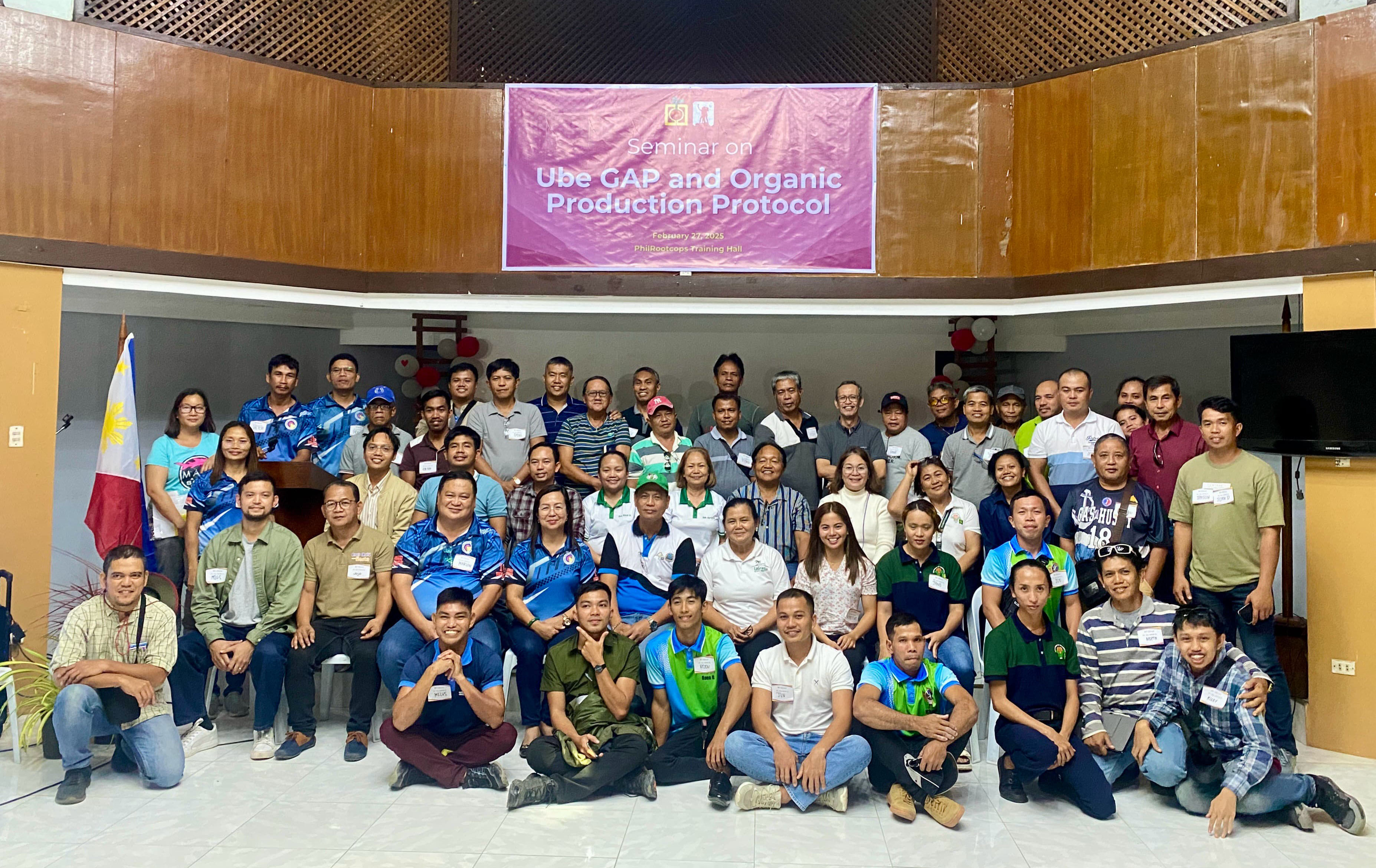Eastern Visayas is set to elevate its ube industry with a stronger focus on organic production. On February 27, 2025, at Visayas State University, the Organikong Magsasaka at Mangingisda sa Rehiyon Otso (OMMRO), in collaboration with PhilRootcrops, the Biodiversity Research Center, Fatima Multi-Purpose Cooperative, and Filipino Ube House with the support of the Department of Agriculture RFO8 and Agricultural Training Institute RTC8, recently conducted a Seminar on Ube Good Agricultural Practices (GAP) and Organic Production Protocol, a key step toward sustainable and competitive ube farming.
Attended by more than 70 participants, the seminar aimed to empower ube producers by letting them be part in the development of organic production protocols, strengthening their networks, and guiding them through the organic certification process, a key requirement to tap into both local and global organic markets.
Guiding the expansion of scientifically backed ube production is PhilRootcrops, a leader in root crop research and innovation. Meanwhile, OMMRO, in partnership with Fatima MPC, has been actively organizing farmer-producers to provide guidance and financial support. Fatima MPC plays a crucial role by offering credit assistance to interested farmers, while Filipino Ube House, a Mindanao-based enterprise, facilitates the marketing of the final products, particularly the premium ube powder and dried ube for exports.
With strong collaborations and continuous innovation, stakeholders aim to position the region as the “Ube Capital of the Philippines” within the next two to three years. While ambitious, this vision is steadily becoming a reality. One of the most significant milestones is the establishment of the largest processing plant in Tunga, Leyte, spearheaded by Fatima MPC, following extensive discussions and site visits later in 2023. The ube processing plant with an estimated cost of 50M is set to launch this coming May 2025.
Recognizing the potential of the initiative, DA RFO8, ATI RTC8, and TESDA RO8 have expressed their full support, particularly in helping farmers secure organic certifications. These efforts aim to ensure sustainability and quality which are critical factors in scaling up ube processing and global market competitiveness.
The seminar featured a full day of discussions, field demonstrations, protocol development workshops, and an open forum with industry experts and other stakeholders.

